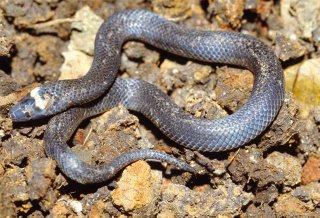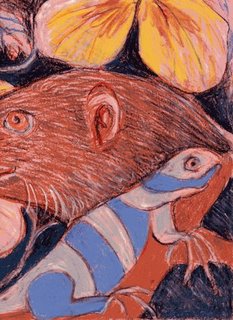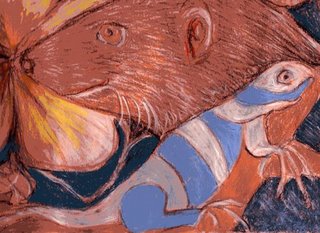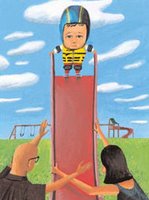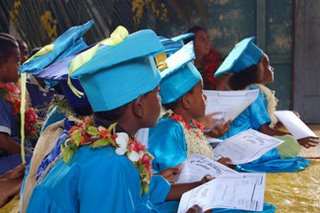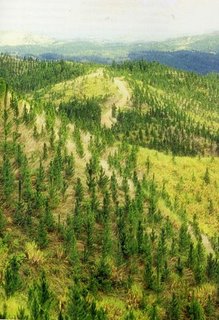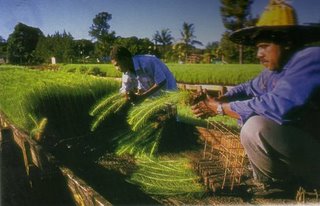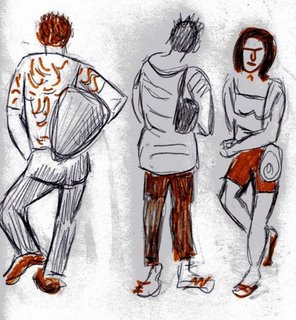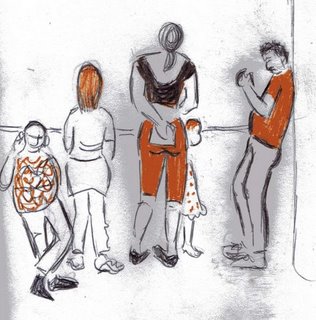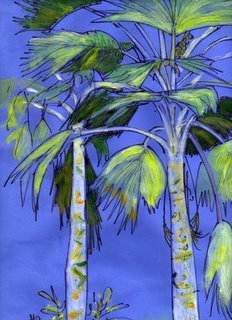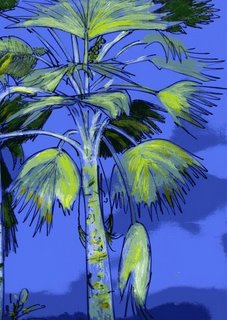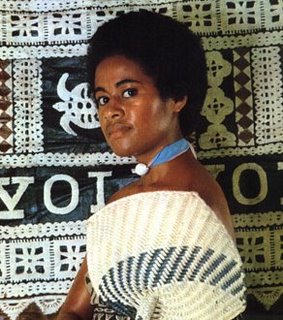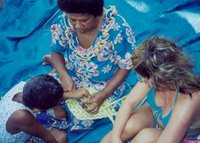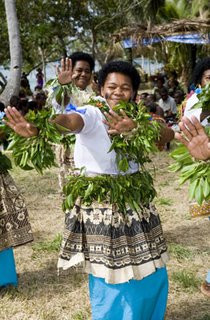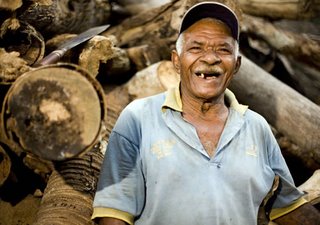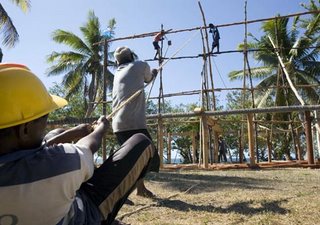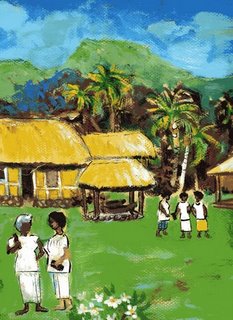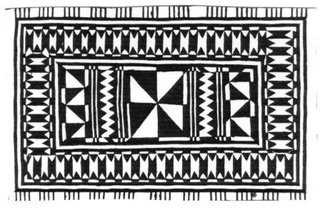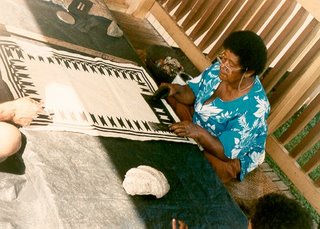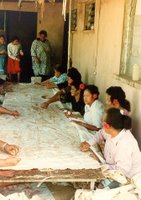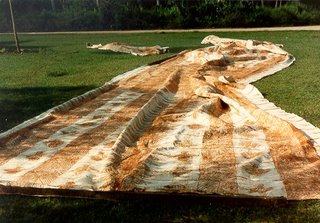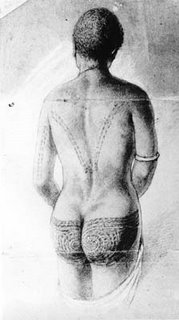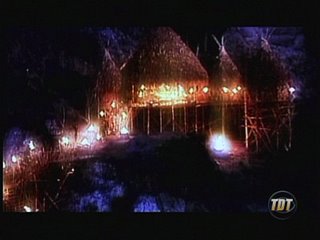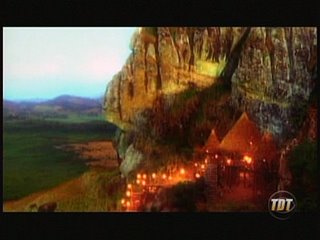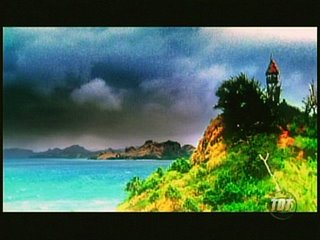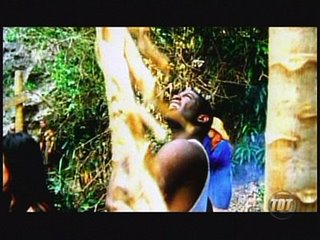from w
When I think about the opening of the school year in Fiji I think of Dudley High School, one of the best schools in Suva. Many of Fiji's finest women have come through the corridors of this school in Toorak, strong, articulate, professional women.
So who was
Miss Dudley? The first book I read about her was sentimental and charming but later on I read a more informative book about her that revealed that she was a feisty Australian woman who deeply cared about the Indian community in Fiji. This was about a hundred years ago. She was of an independent spirit, and would not do what the 'committee men' of the Methodist church told her to do. She even packed up and choofed off with some of the adopted children rather than submit to their requirements that she move away from Suva.
Dudley High School is named after her and also the Methodist Church in Amy Street, Toorak.
I came across this interesting letter written by Hannah Dudley that describes the time of Indian indentured labour in Fiji. It was sent by Hannah Dudley to the Modern Review on 4 November 1912
Source: T. Sanadhya, My twenty-one years in the Fiji Islands, Fiji Museum, 1991
Sir,
Living in a country where the system called “Indentured labour” is in vogue, one is continually oppressed in spirit by the fraud, injustice, and inhumanity of which fellow creatures are the victims.
Fifteen years ago, I came to Fiji to do the mission work among the Indian people here. I had previously lived in India for five years. Knowing the natural timidity of Indian village people and knowing also that they had no knowledge of any country beyond their own immediate district, it is a matter of great wonder to me as to how these people could have been induced to come thousands of miles from their own country to Fiji. The women were pleased to see me as I had lived in India and could talk to them of their own country. They would tell me of their troubles and how they had been entrapped by the recruiter or his agents. I will cite a few cases.
One woman told me she had quarrelled with her husband and in anger ran away from her mother-in-law’s home to go to her mother’s. A man on the road questioned her, and said he would show her the way. He took her to a depot for Indentured labour. Another woman said her husband went to work at another place. He sent word to his wife to follow him. On her way a man said he knew her husband and that he would take her to him. This woman was taken to a depot. She said that one day she saw her husband passing and cried out to but was silenced. An Indian girl, was asked by a neighbour to go and see the Muharram festival. While there she was prevailed upon to go to a depot. Another woman told me that she was going to a bathing ghat and was misled by a woman to a depot.
When in the depot these women were told that they can not go till they pay for the food they have had and for other expenses, they were unable to do so. They arrive in this country, timid, fearful women not knowing where they are to be sent to. They are allotted to plantations like so many dumb animals. If they do not perform satisfactorily the work given to them, they are punished by being struck or fined, or they are even sent to goal. The life on the plantations alters their demeanour and even their faces. Some look crushed and broken-hearted, others sullen, others hard and evil. I shall never forget the first time I saw “indentured” women. They were returning from their day’s work. The look on these women’s faces haunts me.
It is probably known to you that only about 33 women are brought to Fiji to every one hundred men. I can go to into details concerning this system of legalized prostitution. To give you some idea of the result, it will be sufficient to say that every few months some Indian man murders for unfaithfulness of the woman whim he regards as his wife.
It makes one burn with indignation to think of the helpless little children born under the revolting condition of the “indentured labour” system. I adopted two little girls – daughters of two unfortunate women who had been murdered. One was a sweet, graceful child so good and true. It is always a marvel to me how such a fair jewel could have come out of such loathsome environments. I took her with me to India some years ago, and there she died of tuberculosis. Her fair form was laid to rest on a hill side facing snow-capped Kinchin-chinga. The other child is still with me – now grown up to be a loyal true and pure girl. But what of the children – what of the girls – who are left to be brought up in such pollution?
After five years of slavery, after five years of legalised immorality – the people are “free”. And what kind of a community emerges after five years of such a life? Could it be a moral self-respecting one? Yet some argue in favour of this worse than barbarous system, that the free Indians are better off financially than they would be in their own country! I would ask you at what cost to the Indian people? What have their women forfeited? What is the heritage of their children?
And for what is all this suffering and wrong against humanity? To gain profits – pounds, shillings and pence. For sugar companies and planters and others interested.
I beseech of you not to be satisfied with any reforms to the system of indentured labour. I beg of you not to cease to use you influence against this iniquitous system till it be utterly abolished.
-- H. Dudley, Suva Fiji. November 4


